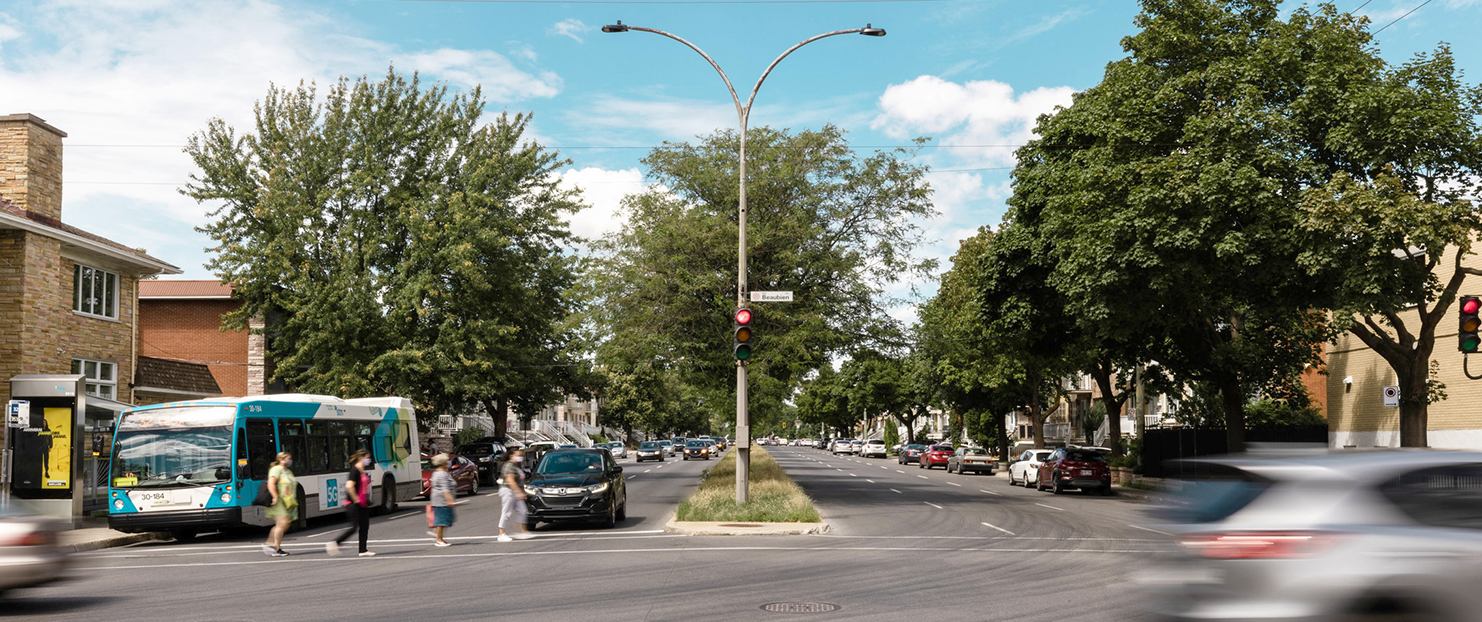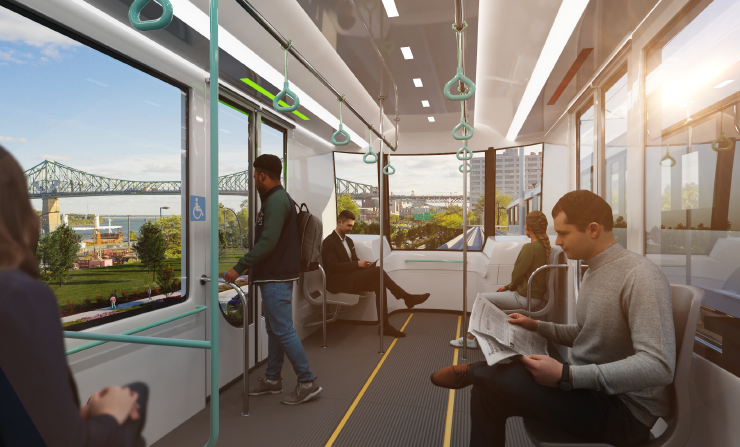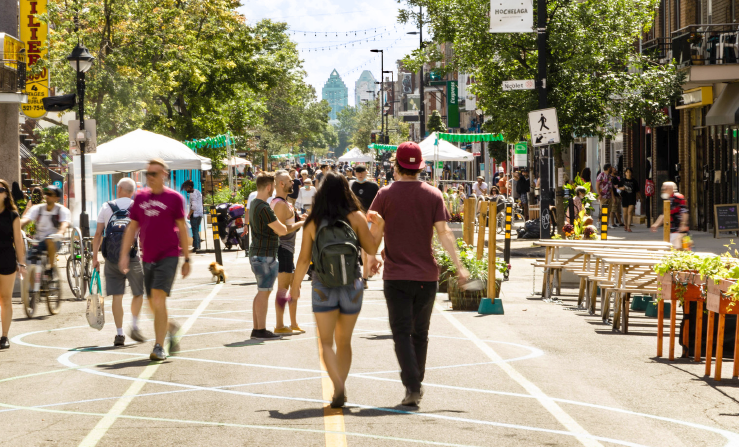Integration
Provide Montréal with a signature, modern and emblematic network
Well-known challenges in the east and northeast
- Very few major investments made in public transit in recent decades
- Low modal share of public transit for travel between attraction centers in the East
- Residential neighborhoods poorly connected to public transit networks
- Bus networks impacted by traffic
The current situation is a major hindrance to development in the east.
How can we integrate an efficient and attractive transit system in eastern and northeastern Montréal while also offering a reliable alternative to solo driving?
Four considerations
to keep in mind
↓
1
An elevated structure was selected based on its range of benefits:

A
Maintenance of existing pedestrian and cyclist walkways and traffic lanes
B
Prevents territorial fragmentation
C
Minimizes the ground footprint
D
Allows for the creation of new public spaces beneath the structures and near the stations
E
Aerial views showcase the city and the Saint-Lawrence River
F
Integrates into neighbourhoods that it crosses
This design allows for the integration of the new light rail system line without impacting either the current roadway development or the flow of pedestrian, bicycle and vehicular traffic while significantly reducing the quantity of land acquisitions.

2
The design will reflect a conscientious approach that ensures harmonization of the architectural signature with the overall project
With the REM de l’Est, CDPQ Infra wishes to provide Montréal with a unique and emblematic structure. To achieve this, a structured approach involving three stages is proposed:

Drafting of guidelines for the network's architectural, urban and landscape integration. These guidelines will be published and made available prior to the BAPE public hearings.

Creating an advisory committee on urban integration made up of experts in the field. This committee will be tasked with issuing recommendations for the design team and commenting on the guidelines which will have already been drafted.

Ongoing dialogue process with citizens and stakeholders to gather comments and recommendations regarding the harmonious integration of the REM de l’Est.
Examples of integration around the world
Washington/Wabash station (Chicago, USA)
LightRails (Birmingham, USA)
Nordpark Cable Railway (Innbruck, Austria)
The Bentway (Toronto, Canada)
The Underline (Miami, USA)
Grand Paris Express (Paris, France)
M1 and M2 line (Copenhagen, Denmark)
3
A structure of this kind generates significant benefits for both users and residents.

FOR users
With the REM de l’Est line, users can enjoy daylight as they travel above the traffic and take in incredible views of the city and its neighbourhoods thanks to an enhanced public transit experience.

FOR RESIDENTS AND VISITORS
CDPQ Infra hopes that this light rail network will become a destination, a source of pride and a Montréal emblem. A public transit system that will enhance the city's neighbourhoods for residents and attract visitors and tourists.
4
REM de l’Est users travelling to downtown Montréal will enjoy a unique travel experience and a distinctive architectural signature.
Subscribe to our newsletter
We will keep you updated on all news and developments regarding CDPQ Infra and our projects.

